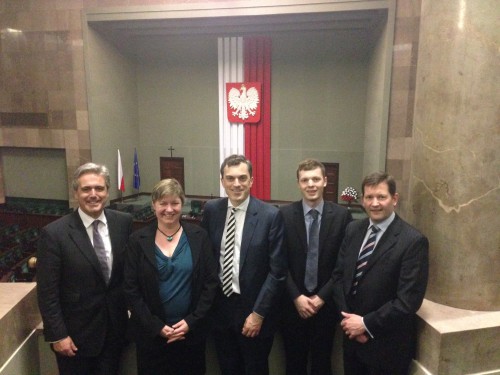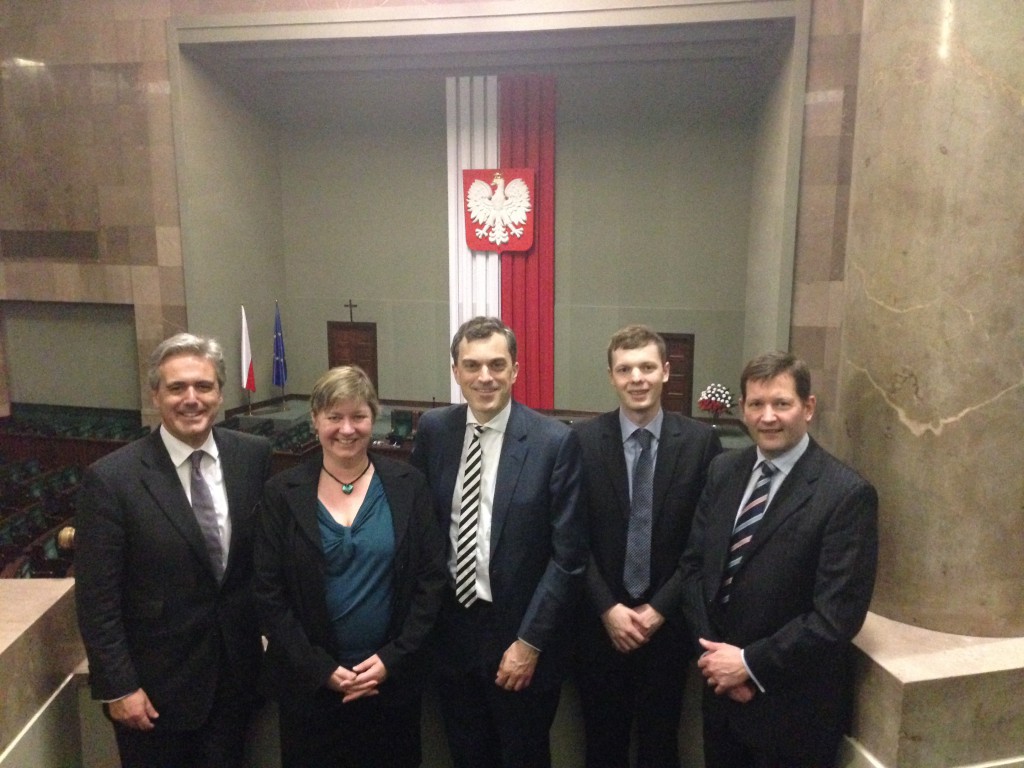
On Friday 28 March members of the House of Commons and House of Lords, as well as representatives of the UK government, met some of their counterparts in Poland. During a conference organised jointly by the British Embassy and Polish parliament, they had a wide-ranging discussion about the economic and institutional reform necessary in the EU.
From a personal point of view, such Polish-British dialogue has a special significance: my family tree has its roots in Warsaw, but has since branched out to London. Ostensibly about our common future, the debate often turned to the rich history of British-Polish relations. For example, Kidderminster, the constituency of Mark Garnier MP, hosts an honorary consul serving a community established 70 years ago. And, as Julian Smith MP highlighted, over half a million Poles live in the UK. Through their work and the relationships they form, they contribute to Britain’s economy, and to its great diversity.
Despite these close links, we still have a lot to learn about and from each other. Poland’s GDP has almost doubled since it became a member in 2004 and head of the EU Affairs Committee, Agnieszka Pomaska, set out the many ways in which EU membership has benefited and strengthened Poland. The visitors from the UK reaffirmed that the UK too is committed to the EU, and is determined that it should support growth and competitiveness, and the jobs they generate.
Lord Hugh Dykes pointed out that British businesses are overwhelmingly in favour of EU membership and the market access which it guarantees. All the more reason to complete the single market, including in the digital arena. Polish MP Andrzej Galazewski wholeheartedly agreed: services do not enjoy freedom of movement and only 8% of small businesses in Europe do business across borders.
Scratch the surface and ever more similarities emerge. Poland and the UK agree on promoting free trade. We both enthusiastically support what could be the largest trade deal in history: the Transatlantic Trade and Investment Partnership with the USA. This could generate 120 billion Euros a year for the European economy. Head of the Public Finances Committee, Dariusz Rosati, added that we also stand side by side in pressing to reduce burdensome EU regulation, which hampers business.
And as fellow Euro “Outs”, the UK and Poland share an interest in a Banking Union which works for those in the Eurozone, but also protects the interests of those EU members who have not joined the euro. So we cooperate closely during these complicated EU negotiations.
The discussions also brought out ways in which the EU could address the disconnect between the EU and its citizens, including through taking another look at the role of national parliaments. British and Polish parliamentarians agreed that problems should be resolved at a national level where possible, and dealt with at the EU level only when necessary. Poland is home to one of the oldest democracies in the world. A tour of the Polish parliament (where the above picture was taken) illustrated the Sejm’s position as the heart of democracy and accountability in Poland.
Michał Cichowlas

